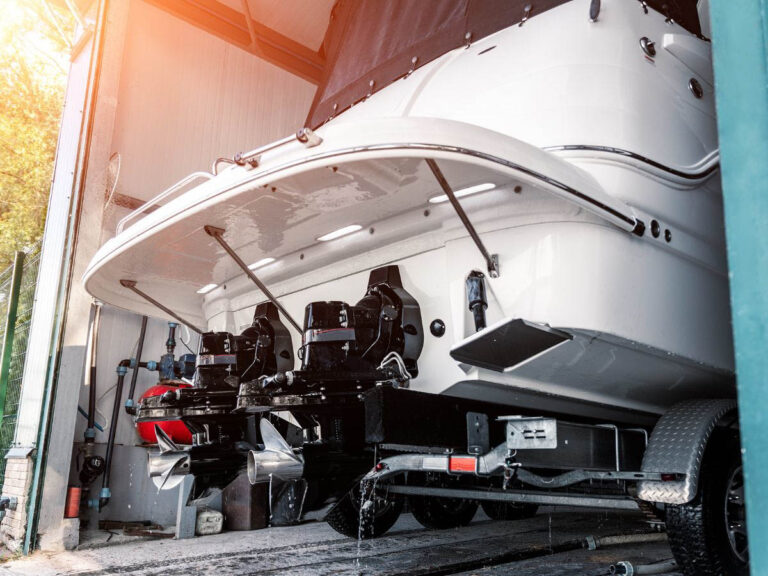Improperly storing your boat can do more harm than you might realize. We’re exploring the multitude of consequences of not storing your boat properly.
Owning a boat is an incredible adventure, but it also comes with a fair share of responsibilities. Proper boat storage is vital for preserving your investment and ensuring its longevity.
When owners don’t store their boats correctly, they can suffer from various issues that lead to costly repairs. Here, we’re discussing the consequences of improper boat storage and exploring a few tips to help you avoid such pitfalls.
Mold and Mildew Trouble Awaits
Improper boat storage often leads to unwanted guests—mold and mildew. These fungi thrive in damp, unventilated areas, making boats prime real estate when not stored properly. These lurkers creep into your boat’s upholstery, make themselves at home on cushions and carpets, and leave unsightly stains and unpleasant odors.
But it’s not just the appearance that’s at risk; mold can affect the health of you and your passengers, potentially causing respiratory issues. By storing your boat in a dry, well-ventilated area and using mildew-preventative products, you will keep these pesky invaders at bay.
Hull and Exterior Damage Unfolds
The hull and exterior of your boat face the brunt of weather without proper shielding. Without adequate storage, your boat remains vulnerable to harsh UV rays, rain, and fluctuating temperatures. Over time, exposure to such elements can lead to fading, cracking, and even structural damage.
Such damage might not be immediately visible, but it can compromise the boat’s safety and performance. A protective cover or enclosed storage facility will save your boat from these external threats and preserve its sleek appearance for years to come.
Electrical Hazards Lurking
Improper storage can wreak havoc on your boat’s electrical system. Moisture can seep into the wiring, leading to shorts and malfunctions that could render your boat inoperable. Or worse, it poses a safety hazard and increases the risk of electrical fires.
Regular maintenance and ensuring your boat stays dry and ventilated can prevent these issues. It’s also important to disconnect the batteries and cover electrical components during storage to protect against unexpected mishaps.
Engine Performance Takes a Hit
Failing to store your boat correctly can negatively affect engine performance. An engine left exposed to harsh weather conditions can suffer from rust and corrosion, leading to reduced efficiency and costly repairs.
Additionally, fuel can degrade over time, clogging the engine and further affecting performance. Regularly servicing your engine and using fuel stabilizers are simple steps that can maintain its performance.
You Can’t Afford To Ignore Winterization
Winter brings its own set of challenges for boat owners, making proper winterization critical. Failing to winterize your boat leads to cracked engine blocks, burst pipes, and other damage that is potentially avoidable.
Taking the time to properly winterize your boat safeguards it from the harsh cold, preserving its value and functionality. Winterizing your boat extends beyond just surviving the offseason; it prepares your vessel for future seasons of enjoyment.
Improper boat storage can lead to a host of consequences, from mold growth to engine damage. By investing in proper storage and maintenance—such as using protective covers, servicing your engine, and winterizing—you protect your investment and ensure your boat lasts for years.







